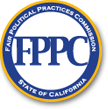FPPC staff backs decreased disclosure
by Chris Reed | March 15, 2015 12:37 pm
 The Internet has made quick, easy disclosure of information the norm in news and social media. This has led reformers to call for a new era in campaign finance in which all political donations are disclosed in almost real time. The old rules mandating monthly or quarterly reports are based on 20th-century assumptions about time-consuming paperwork.
The Internet has made quick, easy disclosure of information the norm in news and social media. This has led reformers to call for a new era in campaign finance in which all political donations are disclosed in almost real time. The old rules mandating monthly or quarterly reports are based on 20th-century assumptions about time-consuming paperwork.
But Assemblyman Richard Gordon, D-Menlo Park, and the staff of the state Fair Political Practices Commission, California’s chief political watchdog, want to go in a different direction[1]. FPPC staffers have endorsed AB 594, Gordon’s measure[2] modifying the landmark Political Reform Act of 1974. This is from the L.A. Times:
Citing inflation, the state’s campaign finance watchdog agency is considering a proposal to raise the fundraising thresholds at which campaigns must report their financing, drawing some concerns from an advocate for fuller disclosure.
Currently, campaign committees and independent expenditure committees must report their fundraising and spending when they receive contributions of $1,000 or more in a calendar year. The state Fair Political Practices Commission staff is recommending that the panel support legislation that would raise that level to $2,000.
In addition, contributors must file special “major donor” reports disclosing all donations they make when they give $10,000 in a calendar year. The bill recommended by the FPPC staff would raise that threshold to $20,000.
Gordon depicted the measure as promoting democracy in comments to the Times:
“The proposed increases, while below what an adjustment for inflation would be, are intended to recognize that the cost of a true grassroots campaign has increased over this time and would allow those campaigns to still operate without the burden associated with filings.”
But the “burden” he cites has been diminishing for two decades, thanks to technology. At the national level, here’s where the campaign finance debate has been focused:
What’s the solution? Spending limits are off the table; like it or not, the Supreme Court is unlikely to reverse itself anytime soon. That leaves transparency as the issue to tackle. Mindful of potential First Amendment problems, Congress should revisit a policy Republicans offered in defiance of McCain-Feingold: Unlimited donations coupled with immediate transparency.
What could be a more modern, tech-fueled reform than requiring political candidates and groups to simultaneously deposit and disclose? Open-government groups could develop apps enabling voters to track donations to certain members of Congress or from specific interest groups, with customized alerts sent to their mobile devices.
That’s from the Jan. 27 column of Ron Fournier in the National Journal[3]. Fournier is the former Washington bureau chief for The Associated Press.
The FPPC board is expected to discuss Gordon’s bill at its meeting Thursday.
- different direction: http://www.latimes.com/local/political/la-me-pc-state-panel-may-support-raising-thresholds-for-campaign-reporting-20150309-story.html
- Gordon’s measure: http://leginfo.ca.gov/pub/15-16/bill/asm/ab_0551-0600/ab_594_bill_20150224_introduced.htm
- National Journal: http://www.nationaljournal.com/politics/the-rise-of-dark-money-and-the-koch-party-20150127
Source URL: https://calwatchdog.com/2015/03/15/fppc-staff-backs-decreased-disclosure/